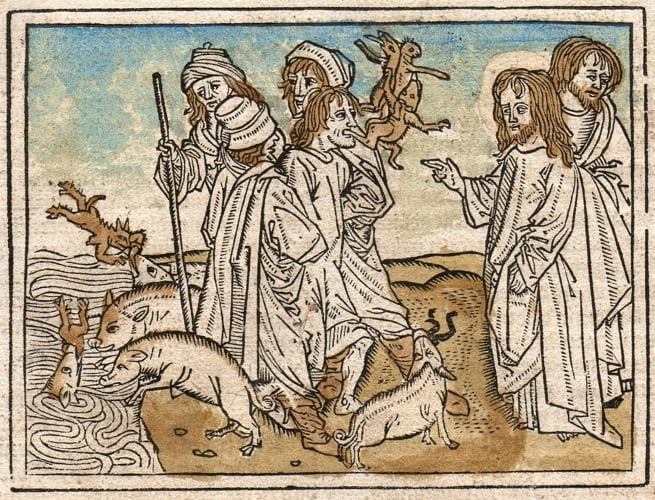Luke 19:9-10 Jesus said to him, “Today salvation has come to this house, because this man, too, is a son of Abraham. For the Son of Man came to seek and to save the lost.”
Zacchaeus was a traitor. In the occupied nation of Israel, he chose to work for the enemy, the occupying force, exacting taxes from his countrymen. The people hated tax collectors like him, and from his testimony, he was hardly upright even in siding with the Romans. He ripped people off.

When Jesus came to his neighborhood, Zacchaeus climbed a tree to get a view of the prophet as he passed. He did not call out to Jesus, but Jesus called out to him, singling him out for a home visit (yes, Dr. Jesus makes house calls). We don’t have the conversation recorded between them but if one questions the art and need for compassionate, confidential confrontation and counsel (hey look, 4 C’s) in ministry just know Jesus did it regularly.
As a result, Zacchaeus emerged from it promising to repay anything he had stolen times four (that would be good interest on one’s money) and to give half of his possessions to the poor. He became thumbs up to the rich young ruler’s thumbs down (see Luke 18:18ff) regarding surrendering his goods to follow Jesus.
Those looking on scoffed at the idea of Jesus visiting the short man, calling him a “sinner” due to his occupation and practice. They were right. Yet, Jesus’ statement that salvation had come to his house (a pun really because Jesus’ name means “Salvation”) and that he too was a son of Abraham advances a proposition that no one, NO ONE is excluded or shunned from saving grace. His statement that He came to save the lost goes perfectly with his initiating street-to-tree contact with Zacchaeus from the outset. It was intentional and absolutely consistent with His purpose.
Who do I exclude, calling names and placing him or her outside grace? I’m dead wrong when I do that, because Jesus calls such a person out of their perch and into love. What group does culture or political tribe say is untouchable by grace? Dead wrong again, that group is the target and early recipients of grace.
How can we (and I) change from an individual who came into Christ as a beggar for mercy turn into a judge and/or soldier keeping people out of our bunker and inner circle? We have no basis for exclusive pride, but only thanksgiving, because:
Romans 5:8 … God demonstrates his own love for us in this: While we were still sinners, Christ died for us.
There are neither gradients nor varieties of sin in that verse because without Christ, we are Zacchaeus up in a tree.




